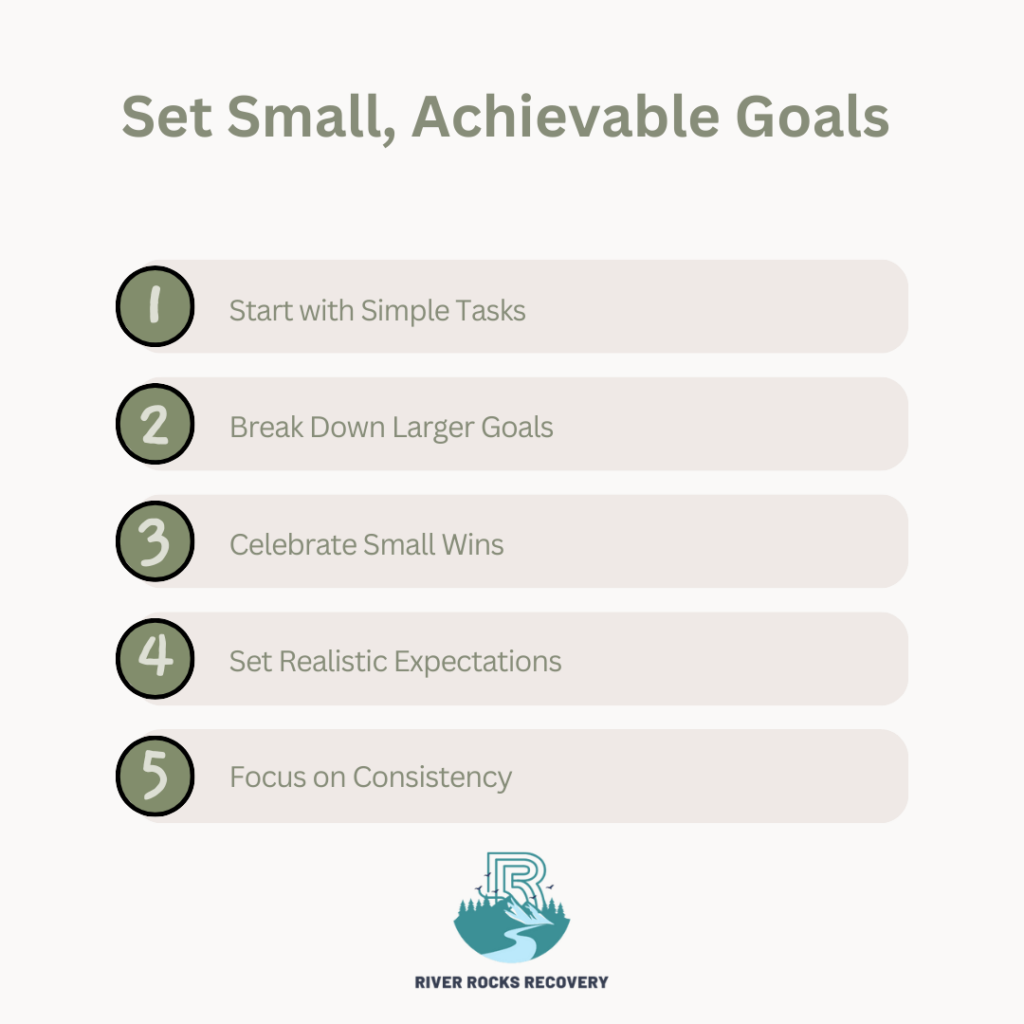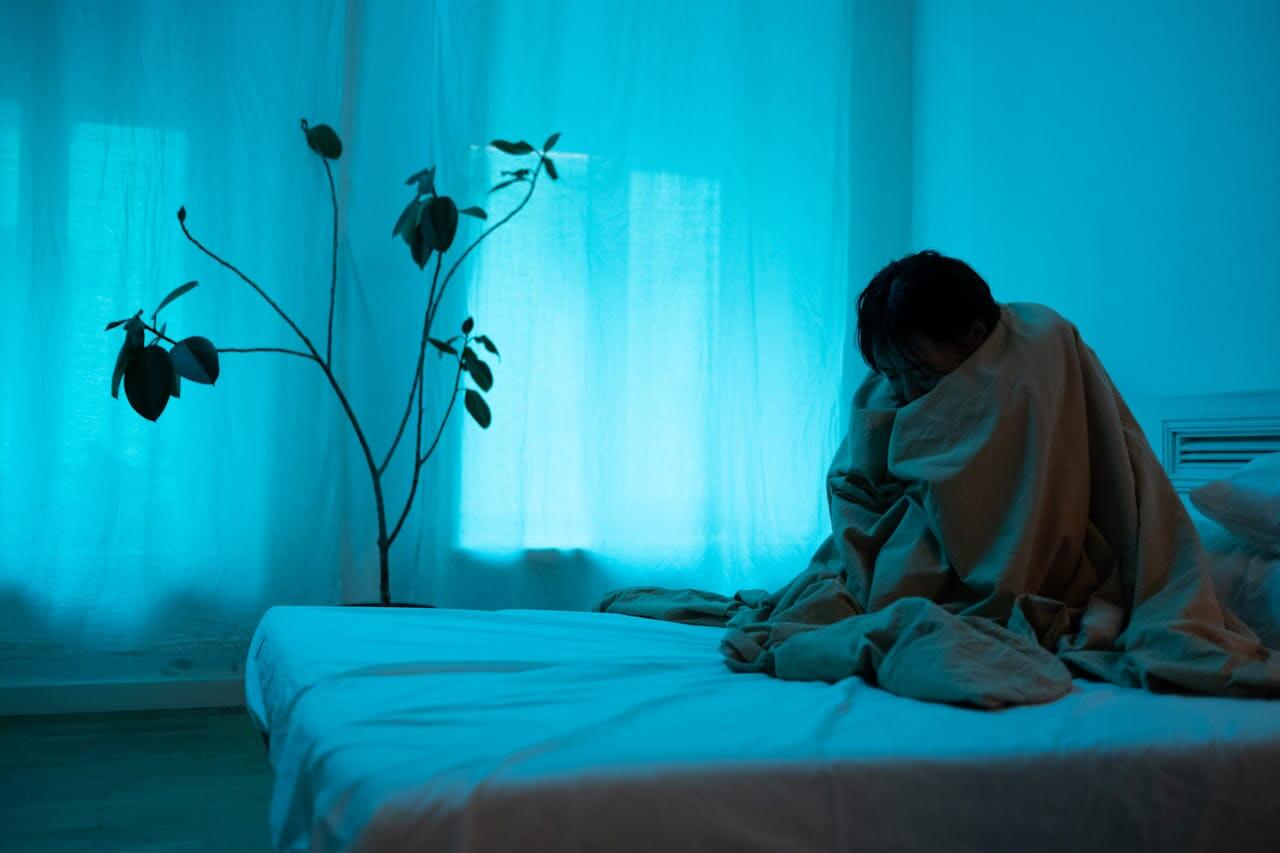Depression can feel like an overwhelming, inescapable darkness, but it’s important to know that help is available, and there are ways to manage and overcome it. Whether you’re struggling with mild depressive symptoms or dealing with more severe cases, it’s possible to find light in the dark.
Depression is more than just feeling down or experiencing occasional sadness—it’s a mental health condition that can affect every aspect of life, making it difficult to get through the day. While it may feel overwhelming, there are effective strategies to help you navigate through depression and regain a sense of control. Whether you’re managing depression on its own or as part of a dual diagnosis in recovery, there is hope and help available.
At River Rocks Recovery, we understand how crucial mental health is to your overall well-being. With comprehensive Mental Health Treatment Programs and a holistic approach to care, we help individuals in Ohio reclaim their lives from addiction and mental health struggles. Let’s explore practical ways you can manage depression and support your recovery journey.
Understanding Depression
Depression is a complex mental health disorder that involves prolonged feelings of sadness, hopelessness, and a lack of interest in activities once enjoyed. For individuals who are also overcoming addiction, depression can be especially challenging, as both conditions feed off one another. This is where integrated care from a trusted Mental Health Treatment Center can make a difference.
Practical Tips for Dealing with Depression
1. Seek Professional Help
The first and most crucial step in managing depression is to seek professional help. Mental health professionals such as therapists, counselors, and doctors are trained to provide the right support, diagnosis, and treatment plans to manage your condition. Treatment often includes therapy, medications, or a combination of both, tailored to your specific needs.
For those also struggling with substance abuse, depression often worsens, and the need for dual diagnosis treatment arises. Addiction treatment programs such as Ohio Addiction Treatment Center can offer specialized care for individuals dealing with both addiction and mental health issues.
2. Explore Therapy Options
Therapy is a highly effective way to understand and address the root causes of depression. Different types of therapy cater to various needs, and finding the right one can make a world of difference.
- Addiction Therapy Programs offer individuals a structured environment to deal with substance abuse issues and the depression that often accompanies them.
- Cognitive-behavioral therapy (CBT) helps patients reframe negative thoughts and develop healthier mental habits.
- In addition, Intensive Outpatient Programs (IOPs) and Partial Hospitalization Programs (PHPs) provide intensive therapy without requiring a long-term stay at a facility, which may be ideal for those balancing life and recovery.
3. Adopt Healthy Lifestyle Habits
Physical health and mental well-being are closely connected. Small changes in your daily routine can have a big impact on managing depressive symptoms. Some strategies include:
- Exercise regularly: Physical activity releases endorphins, chemicals in the brain that naturally boost mood.
- Eat a balanced diet: Proper nutrition plays a role in maintaining mental clarity and energy.
- Sleep well: Poor sleep can exacerbate depression. Ensure you’re getting enough rest to improve mood and overall health.
In addition, engaging with Outpatient Treatment Programs for depression or addiction can help provide additional support while managing your daily responsibilities.
4. Set Small, Achievable Goals
One of the hallmark symptoms of depression is a feeling of hopelessness and the sense that nothing will ever get better. To combat this, setting small, achievable goals can help build momentum and give you a sense of accomplishment. It could be as simple as getting out of bed, taking a short walk, or preparing a healthy meal.
Through various Addiction Treatment Programs and mental health services, like those provided at Ohio Addiction Treatment Center, individuals are often guided to break down their recovery into manageable steps. This same concept can be applied to dealing with depression, making the overwhelming tasks seem more attainable.

5. Stay Connected
Depression often causes people to withdraw from friends and family, even though maintaining social connections is key to improving your mental health. Even when it feels difficult, try to reach out to a loved one, join a support group, or talk to a professional about how you’re feeling.
Addiction recovery centers often offer group therapy options, and you can look for similar supportive environments through Addiction Treatment Programs. These programs can create a safe space to talk about your struggles, offering encouragement and understanding from others going through similar experiences.
7. Explore Holistic Therapies
Practices like yoga, meditation, and mindfulness have been shown to reduce stress and improve mood, making them great complementary treatments for depression.
Some Addiction Therapy Programs incorporate these holistic approaches to help patients regain balance in their lives. By integrating practices such as meditation and breathing exercises, you can develop coping mechanisms that can help alleviate depressive symptoms.
8. Find the Right Addiction and Depression Support
If your depression is linked to substance abuse, it’s crucial to seek help from a facility that specializes in treating both issues. Partial Hospitalization Programs, Intensive Outpatient Programs, and Outpatient Treatment Programs offered by reputable facilities like Addiction Treatment Center Ohio provide comprehensive care for both addiction and mental health. These programs can give you the support you need to conquer both battles simultaneously, ensuring long-lasting recovery.
Seeking Help for Depression and Addiction
If you are dealing with both depression and addiction, it’s essential to seek integrated treatment that addresses both conditions. Our Addiction Treatment Programs at River Rocks Recovery are designed to treat co-occurring disorders, providing a comprehensive approach that includes mental health support alongside addiction recovery.
Whether through our Partial Hospitalization Program, Intensive Outpatient Program, or Outpatient Treatment Programs, we are here to help you conquer the darkness of depression and addiction.
Conclusion
Dealing with depression is a complex and challenging journey, but it’s important to remember that you are not alone. From therapy to lifestyle changes and specialized addiction treatment, there are numerous ways to find the light. Programs like Addiction Treatment Center Ohio offer the support and guidance you need, whether through Addiction Therapy Programs, Intensive Outpatient Programs, or Partial Hospitalization Programs. Healing is possible, and with the right support, you can start moving forward towards a brighter, healthier future. Contact us today at (888) 905-6281 to start your journey toward healing.
FAQ on Managing Depression Effectively
What are some practical steps I can take to manage my depression?
Building a support network, establishing a routine, staying physically active, practicing mindfulness, and seeking professional therapy are all effective ways to manage depression.
How can therapy help with depression?
Therapies like Cognitive Behavioral Therapy (CBT) provide strategies to reframe negative thoughts and develop healthy coping mechanisms, which can significantly alleviate depressive symptoms.
Does physical exercise really help with depression?
Yes! Regular exercise releases endorphins, the body’s natural mood elevators, which can reduce feelings of depression and anxiety.
Should I seek professional help if my depression is overwhelming?
Absolutely. If your depression is affecting your daily life, it’s important to seek help from mental health treatment center. River Rocks Recovery offers comprehensive mental health and addiction treatment programs.
Can mindfulness and meditation help with depression?
Yes, mindfulness and meditation can reduce stress, promote emotional balance, and help you stay grounded in the present, all of which are useful in managing depression.




























